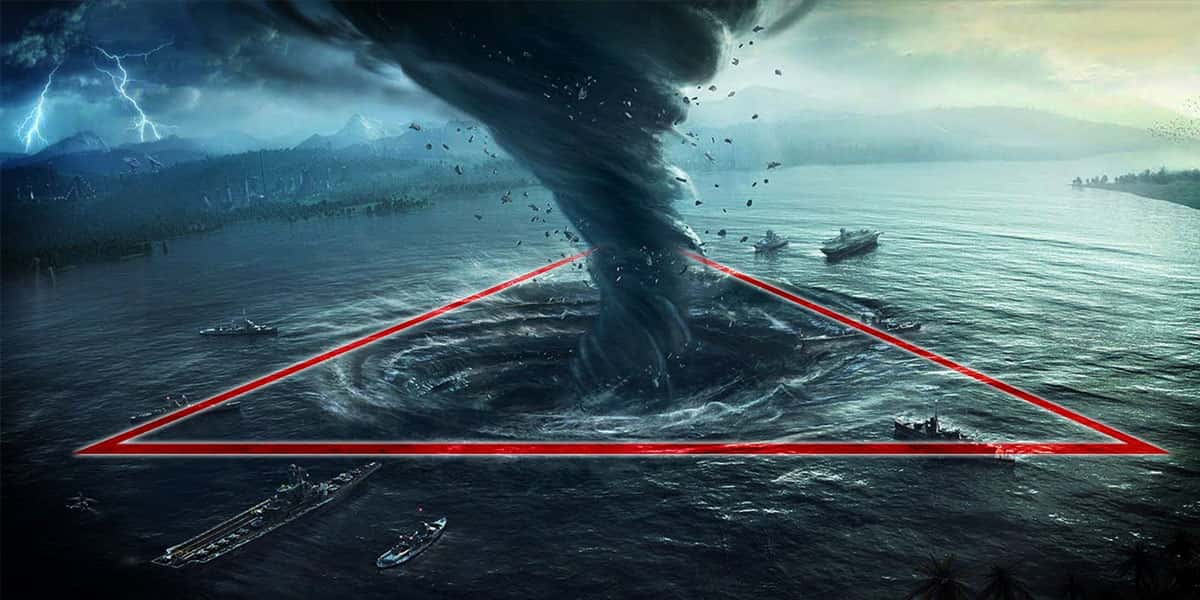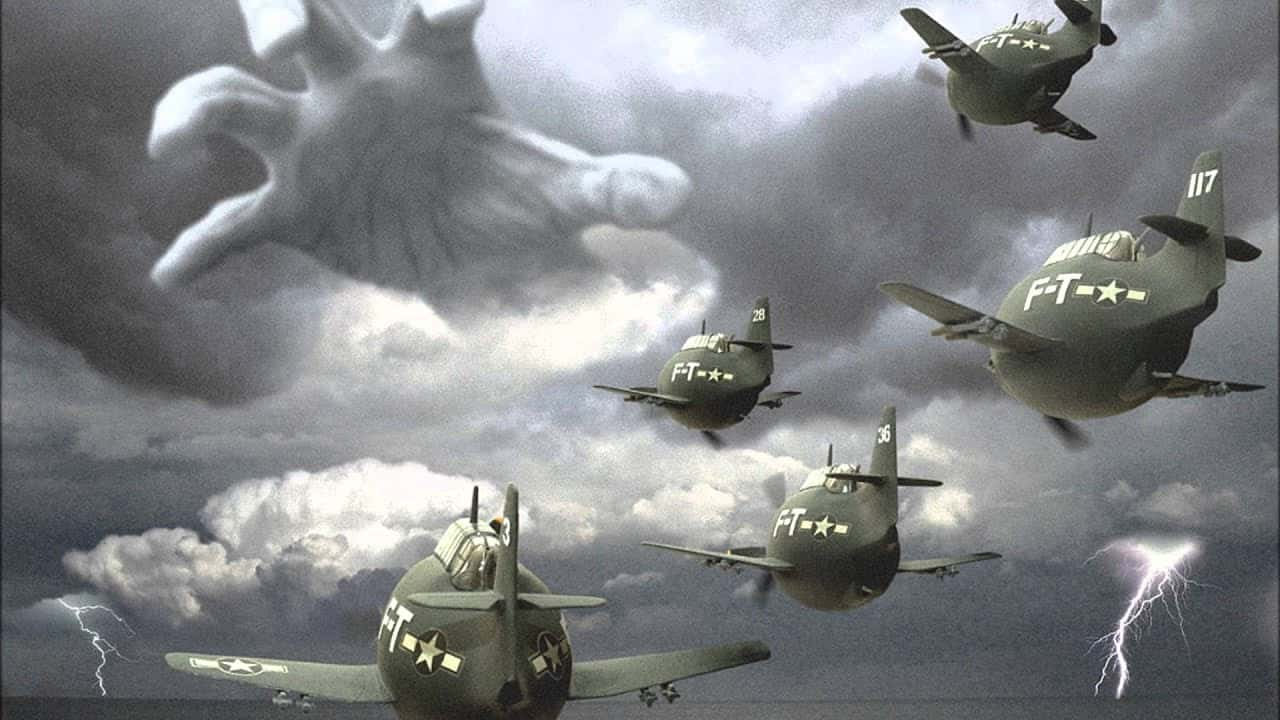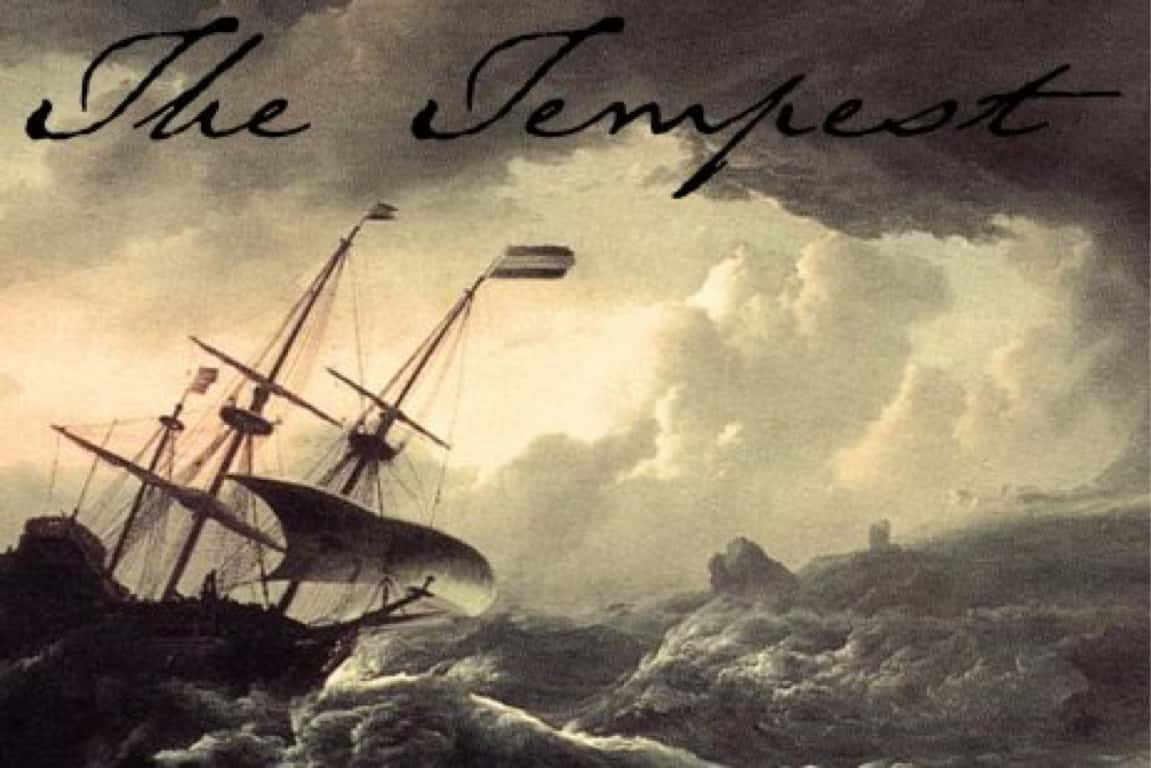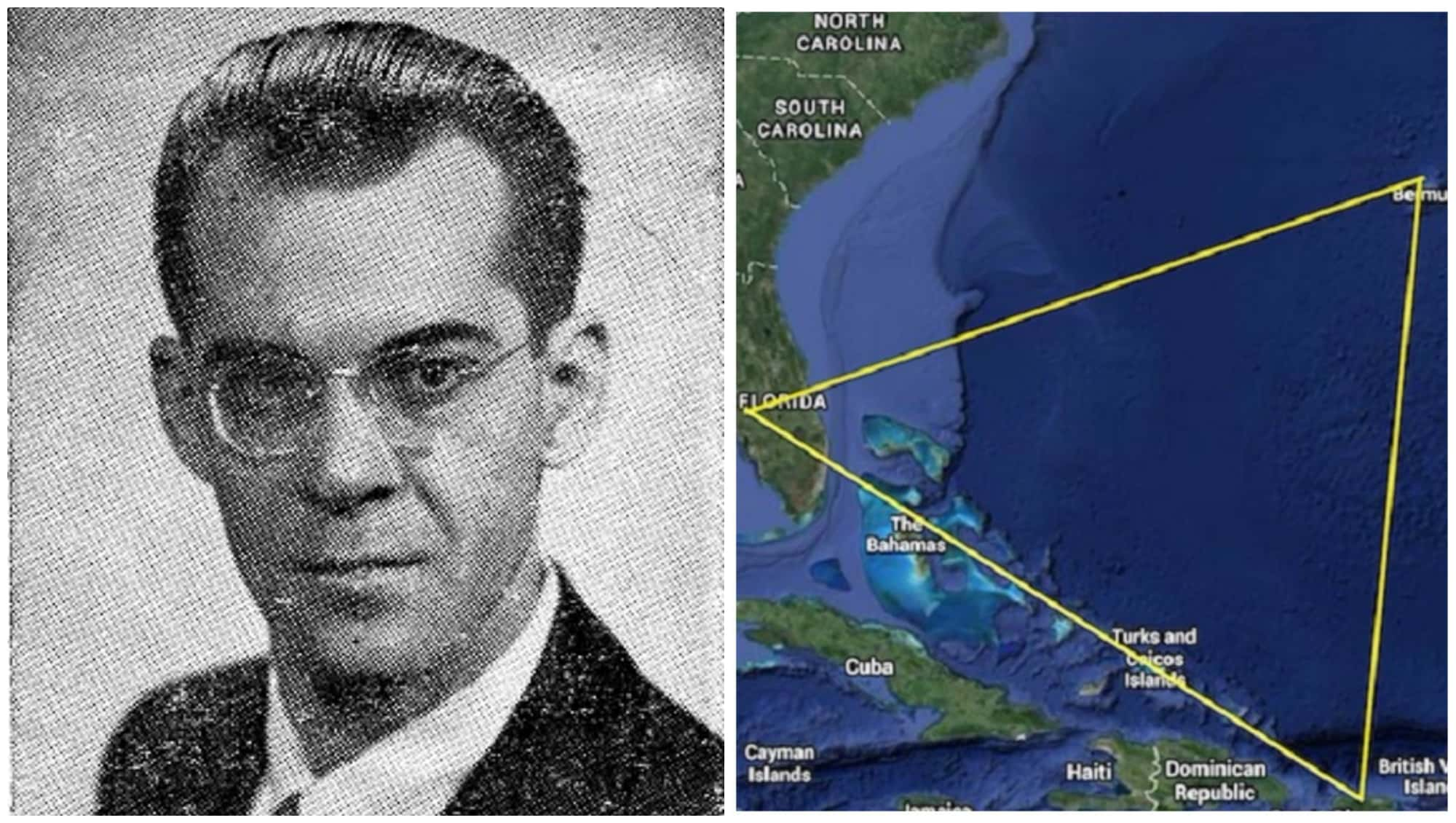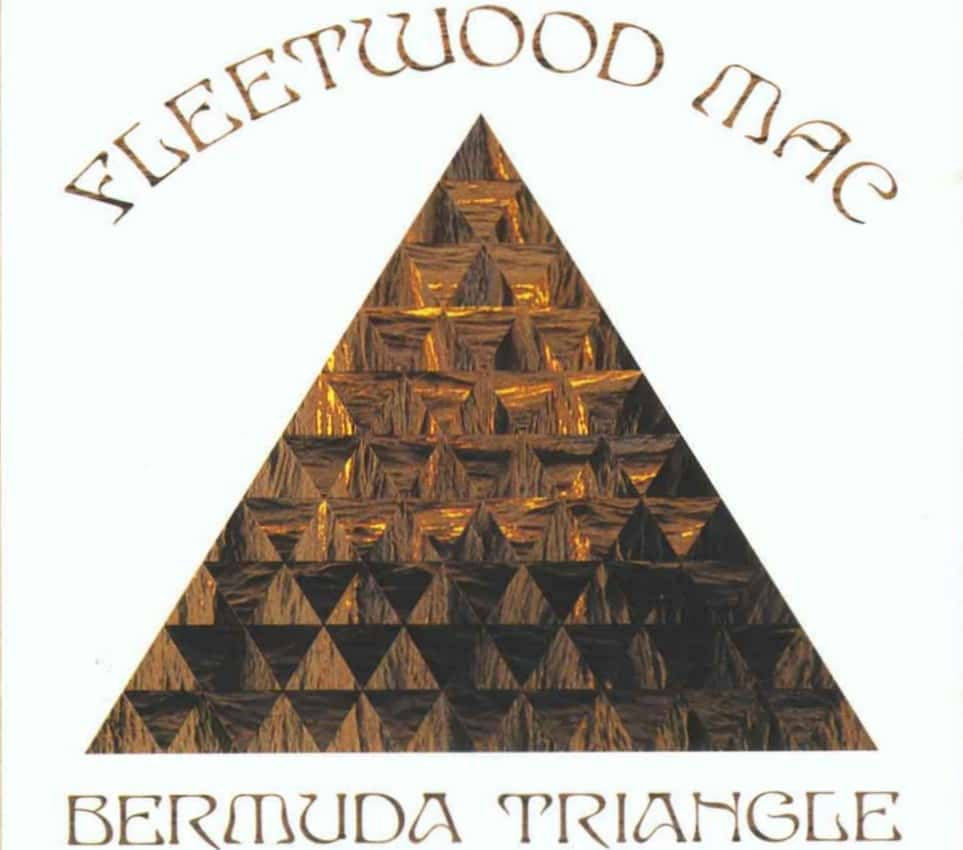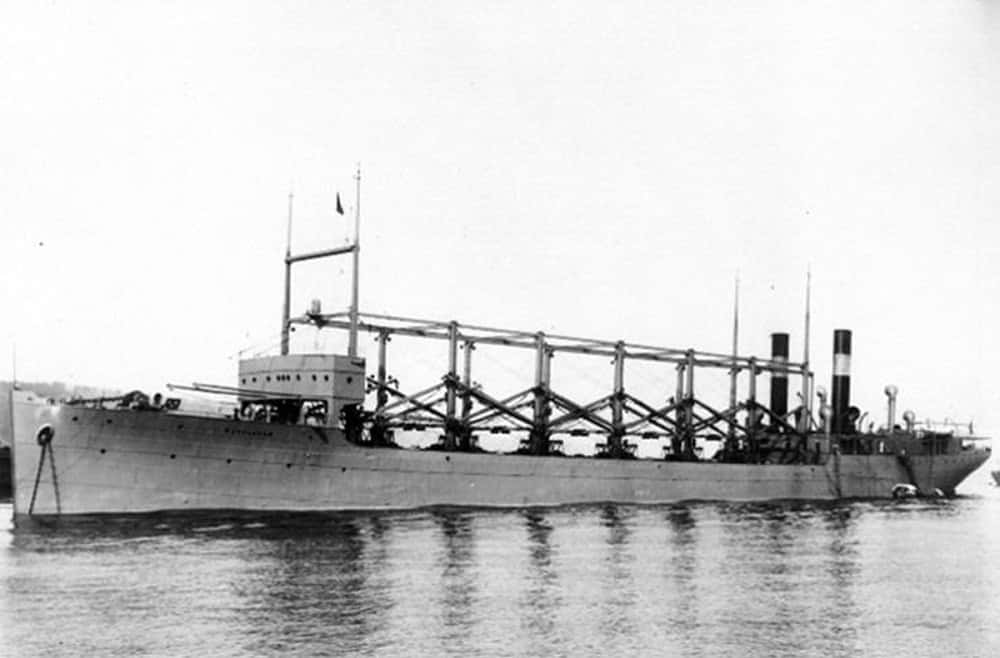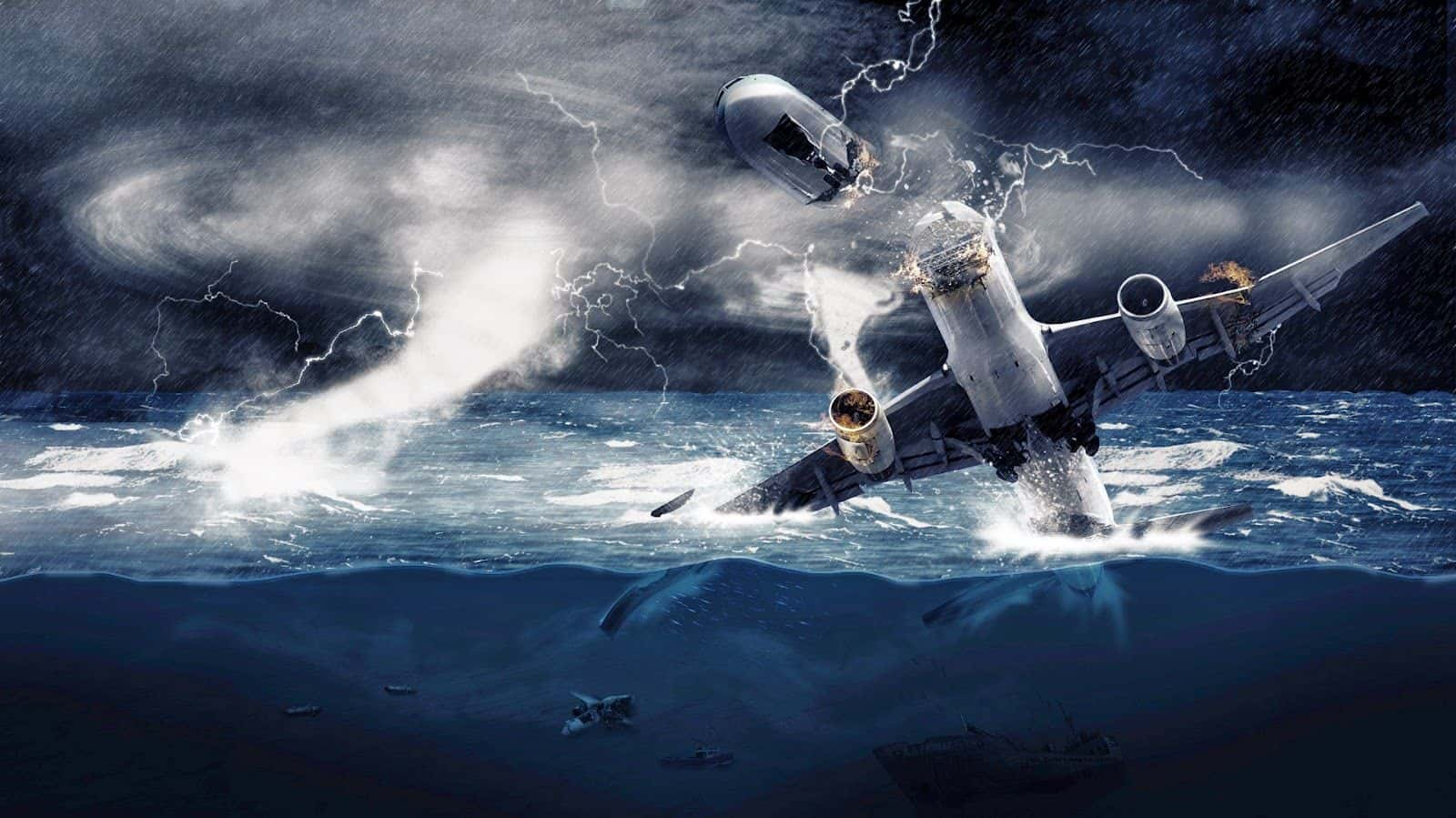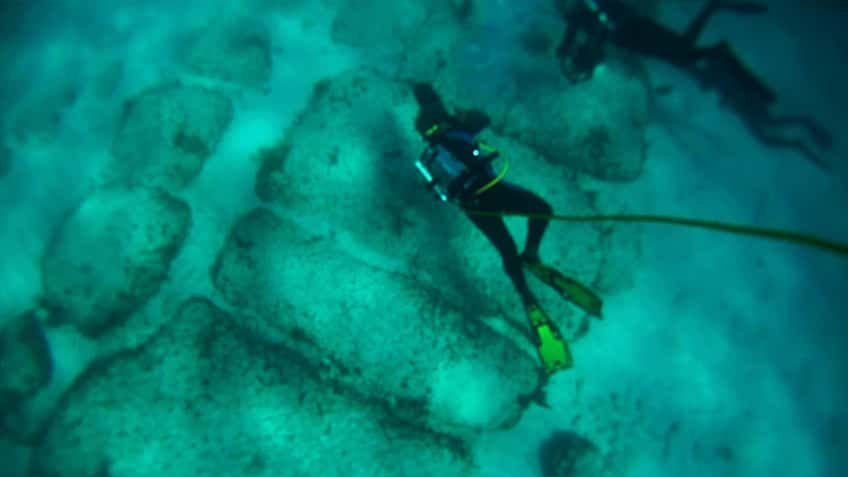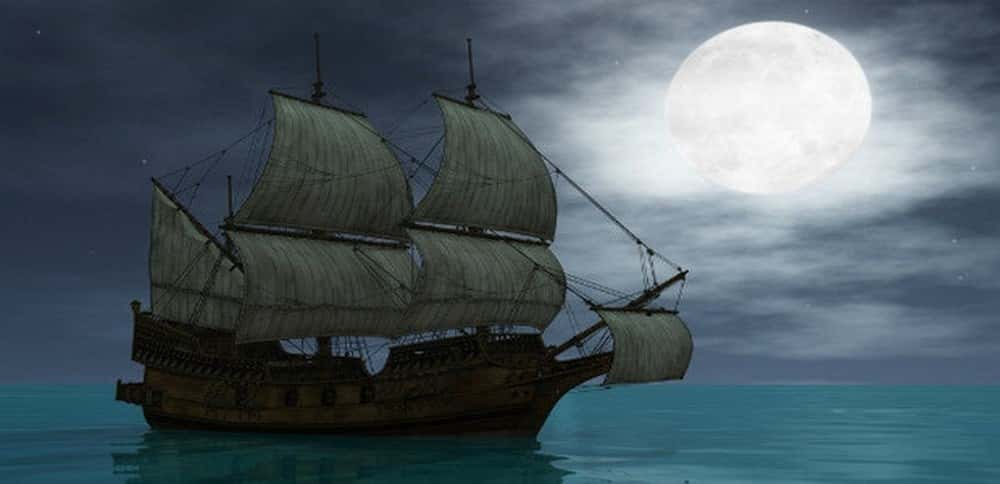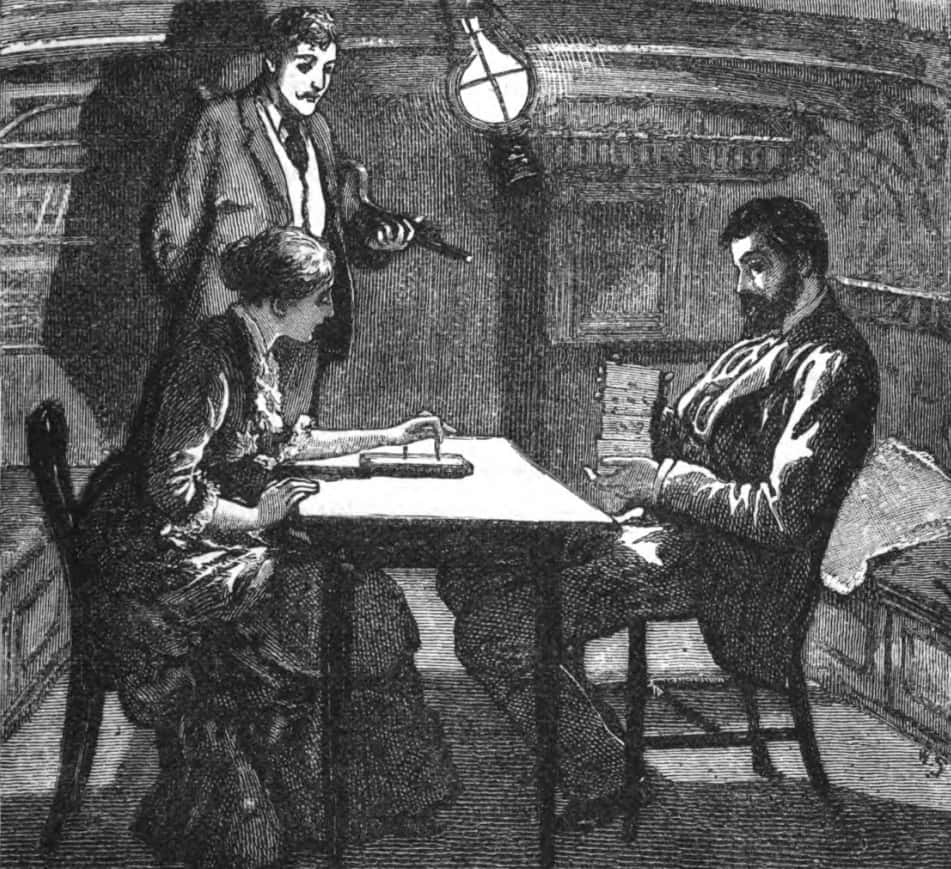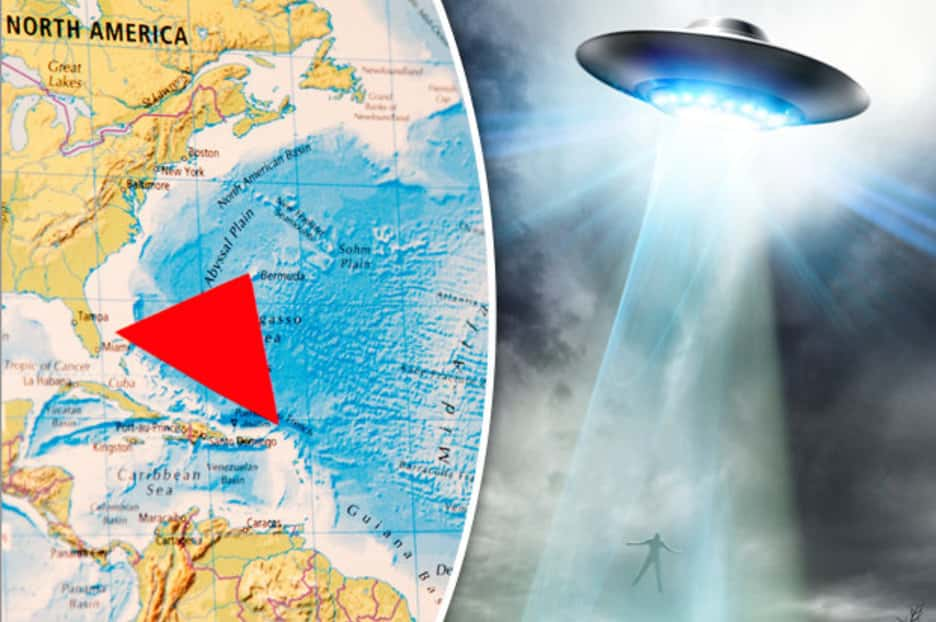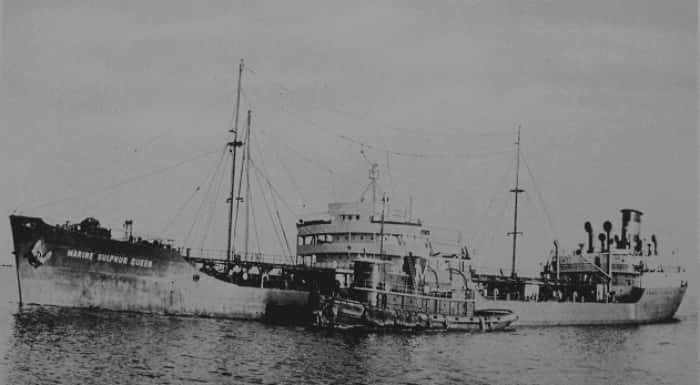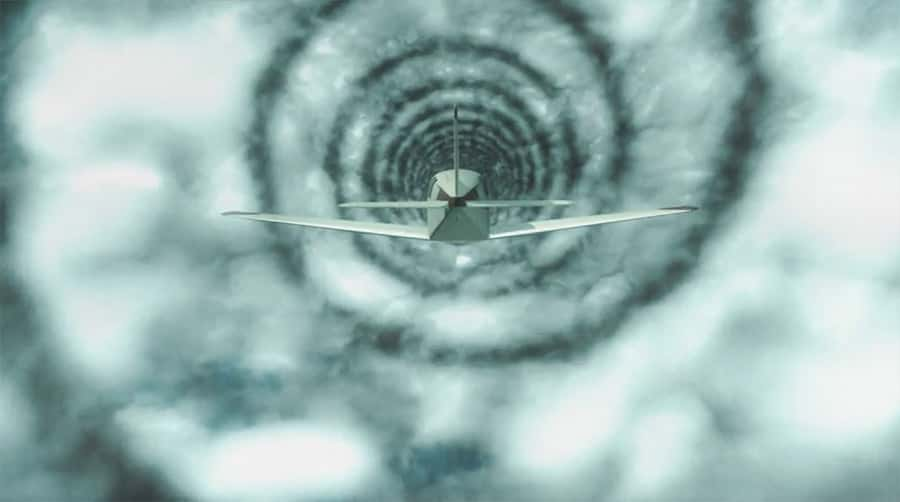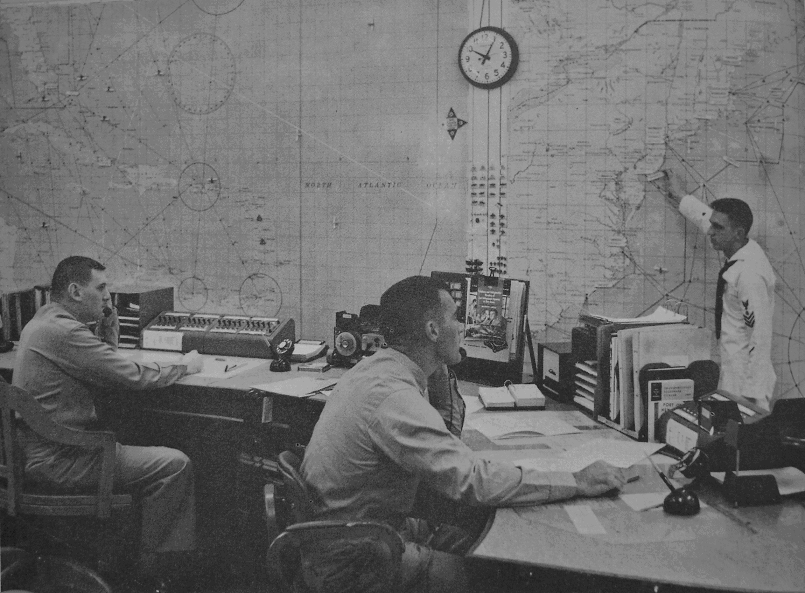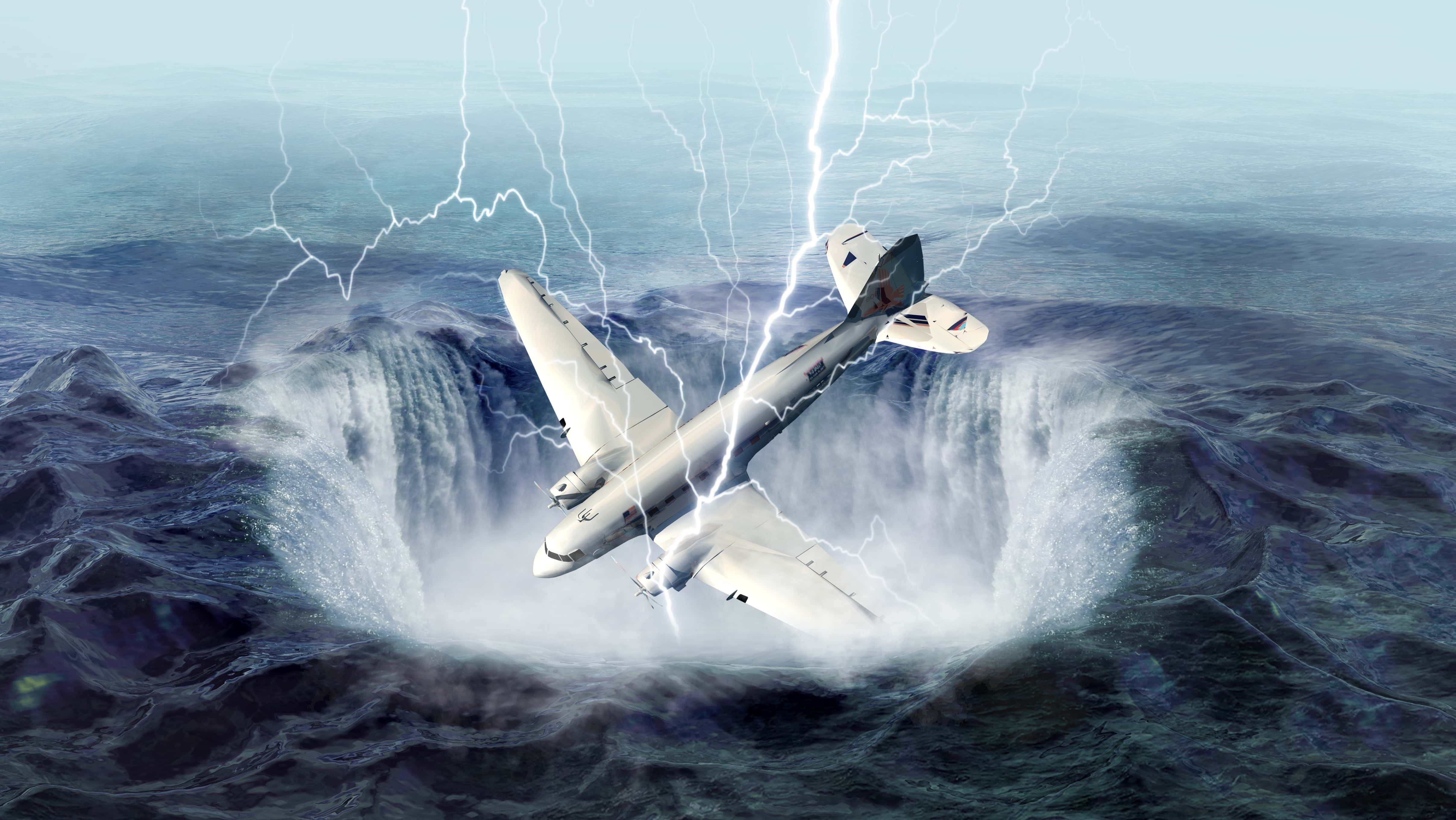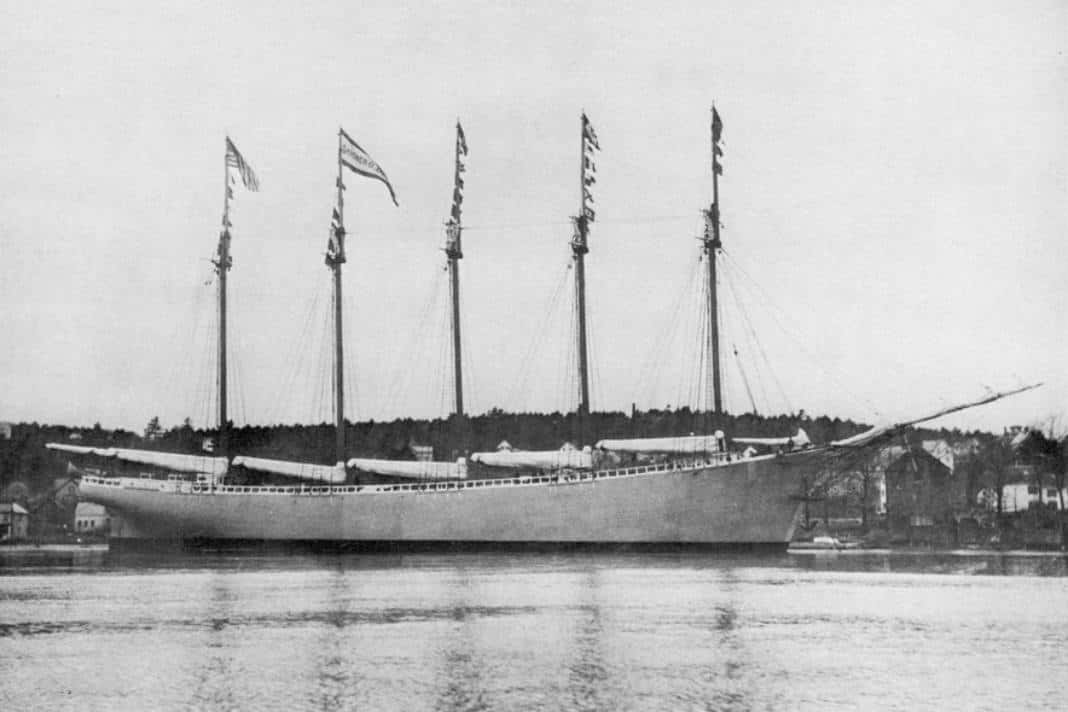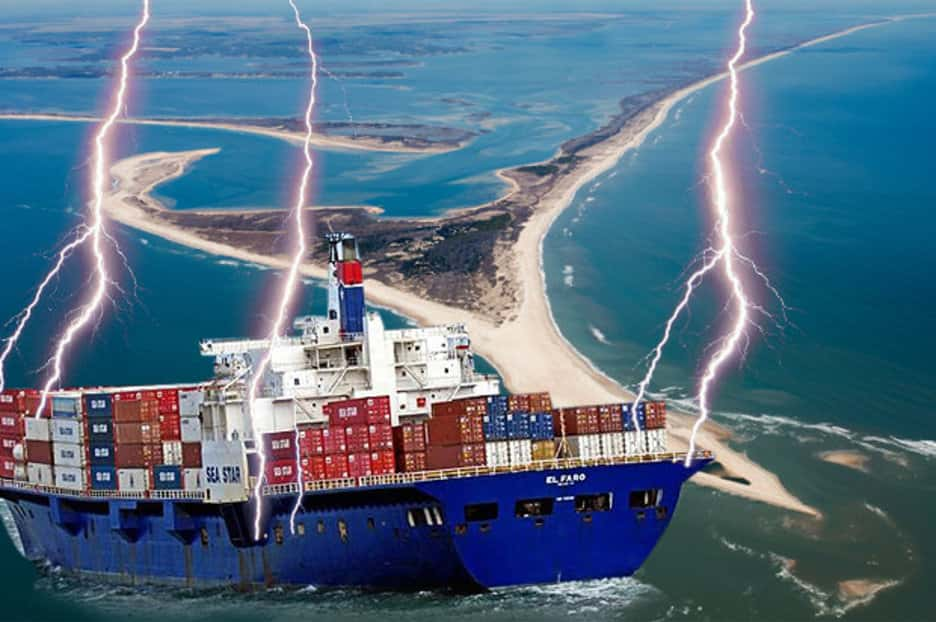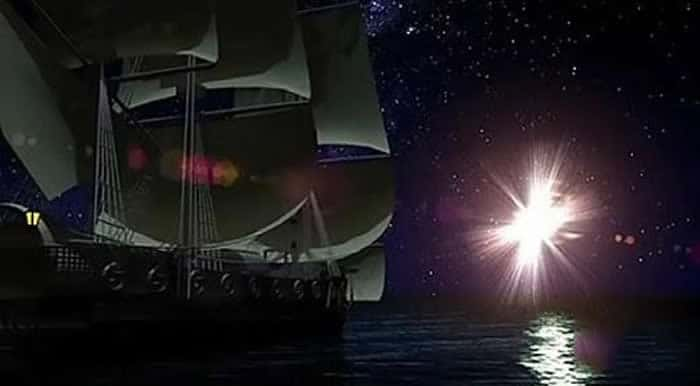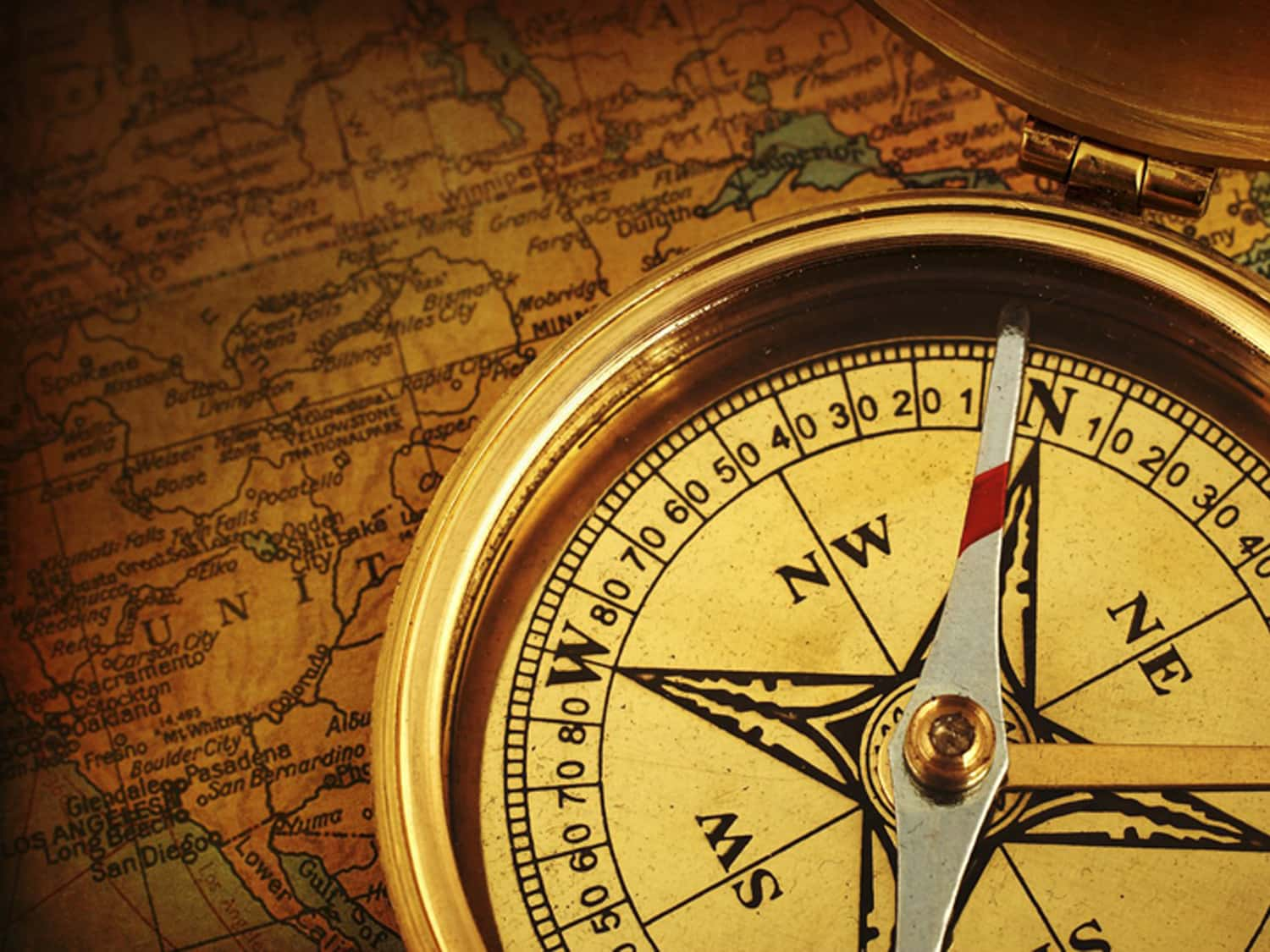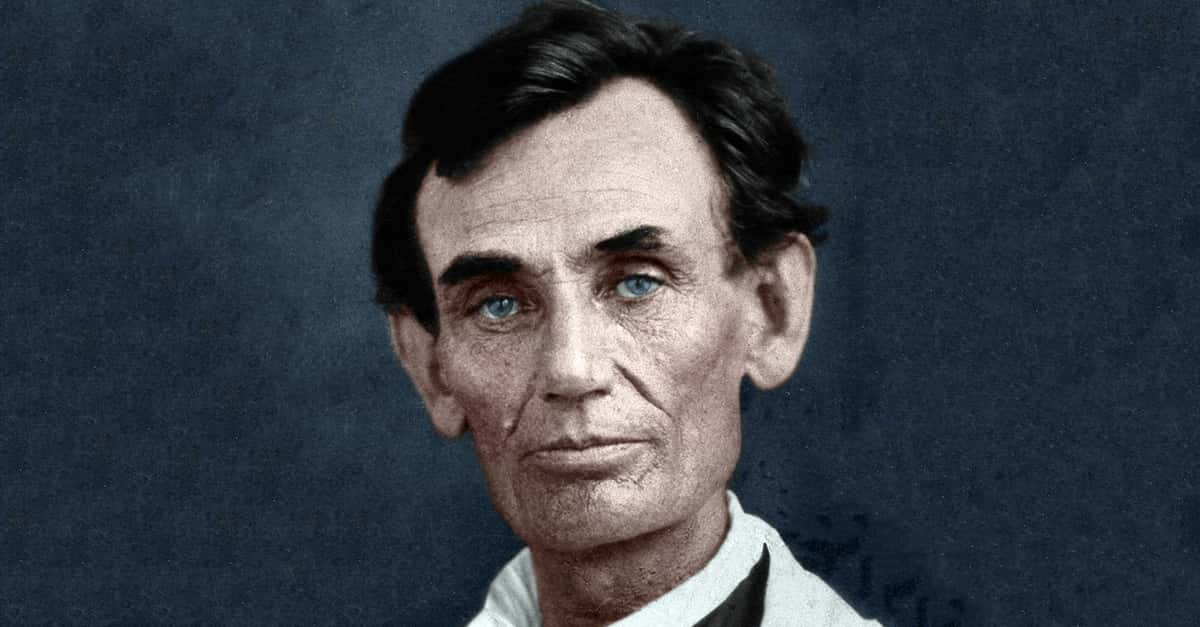"Mysteries once thought to be supernatural or paranormal happenings—such as astronomical or meteorological events—are incorporated into science once their causes are understood."—Michael Shermer
The Bermuda Triangle, otherwise known as “The Devil’s Triangle,” is a region in the western section of the North Atlantic Ocean that has become notorious for the many ships and aircraft that have mysteriously disappeared attempting to traverse it. Some people believe that the cause of the disappearances is paranormal or extraterrestrial, but as of yet there is no definitive proof that anything unexplainable by science or logic has ever occurred. Yet, it's undeniable that a lot of curious things have happened in the Triangle, going back centuries. So is everything that happens there just a normal part of life on the high seas, or is there something going on that we don't truly understand? Read on for 25 facts about this mysterious phenomenon that has left us mystified for so long.
Bermuda Triangle Facts
25. Flight 19
Further adding fuel to the eerie reputation of the Bermuda Triangle was the disappearance of five Navy Bombers in 1945. The mission, known as Flight 19, was carrying fourteen men, and took off from Fort Lauderdale airfield on practice bombing runs. The plane's compasses malfunctioned, and they soon became completely lost. They flew without direction until they ran out of fuel and were forced to ditch. Later that day, a 13-man rescue crew also disappeared while searching for them. After weeks of searching, no sign of either crew was ever found.
24. Pacific Bermuda Triangle
While the Bermuda Triangle is perhaps the most famous mysterious region in the oceans, there are other places in the world with similar occurrences. The area called The Devil’s Sea (or the Pacific Bermuda Triangle) is a triangle between Japan and the Islands of Bonin, including part of the Philippine Sea. Many planes and ships have mysteriously disappeared in the region, and people have reported seeing ghost ships sailing the waters there. The Japanese call it Ma-no Umi, meaning “Sea of the Devil.” Why does Bermuda have to hog all the glory?
23. What Shakespeare Wrote
Some scholars believe that Shakespeare’s play The Tempest was based on shipwreck that occurred in the Bermuda Triangle area. In 1609, a set of ships set sail from England to the Colony of Virginia. The ship called the Sea Venture was separated from the other vessels by a storm, and it eventualy wrecked on the coasts of Virginia. Some of the survivors returned home, and it’s possible that he would have spoken to some of them himself and drawn inspiration for the play.
22. Setting Boundaries
In 1964, American author Vincent Gaddis defined the boundaries of the Bermuda Triangle for the very first time, in an issue of the magazine Argosy. It’s called the Bermuda Triangle because, believe it or not, the region forms a triangular zone in the Atlantic. The three corners are Miami, San Juan in Puerto Rico, and the island of Bermuda. In his article, Gaddis called it the “deadly Bermuda Triangle,” and the name stuck.
21. Immortalized in Song
The steady stream of debunked stories hasn't slowed down pop culture's interest in the Bermuda Triangle At least two popular songs, by Fleetwood Mac (1974) and Barry Manilow (1981), respectively, have been named after the spooky region. The Manilow track reached #15 on the UK charts, and was a metaphor for losing his girl. The Fleetwood Mac song was written by singer and guitarist Bob Welch, who was fascinated by the occult and paranormal, and decided to write a song about one of the most popular paranormal mysteries at the time. The songs “Without a Trace” by Sabbat, and “Flight Nineteen” by Angel Witch both refer to the disappearance of Flight 19, one of the Triangle's most enduring mysteries.
20. Infamous Tragedy
In March 1918, a 542-foot long Navy Cargo ship known as the Cyclops sank somewhere between Barbados and the Chesapeake Bay. The ship had 300 men and 10,000 tons of manganese ore onboard, and despite having the capability of sending out a distress call, it never did. A thorough search of the area was conducted looking for the wreck, but no sign of it was ever found. President Woodrow Wilson later said of the tragedy, “Only God and the sea know what happened to the great ship.”
19. Establishing a Pattern
During WWII, about 25 years after the disappearance of the Cyclops, two more similar ships disappeared in the Bermuda Triangle. The first, Proteus, was a sister ship to Cyclops, and the Bermuda Triangle was blamed. Another of Cyclops’s sister ships, the Nereus, disappeared a month later, while following the same route as the Cyclops. The loss was initially blamed on German U-Boats, but it has never been proven. Like her sister ships, the Nereus was never found. According to a Canadian website, both ships may simply have broken up in the heavy seas caused by violent weather.
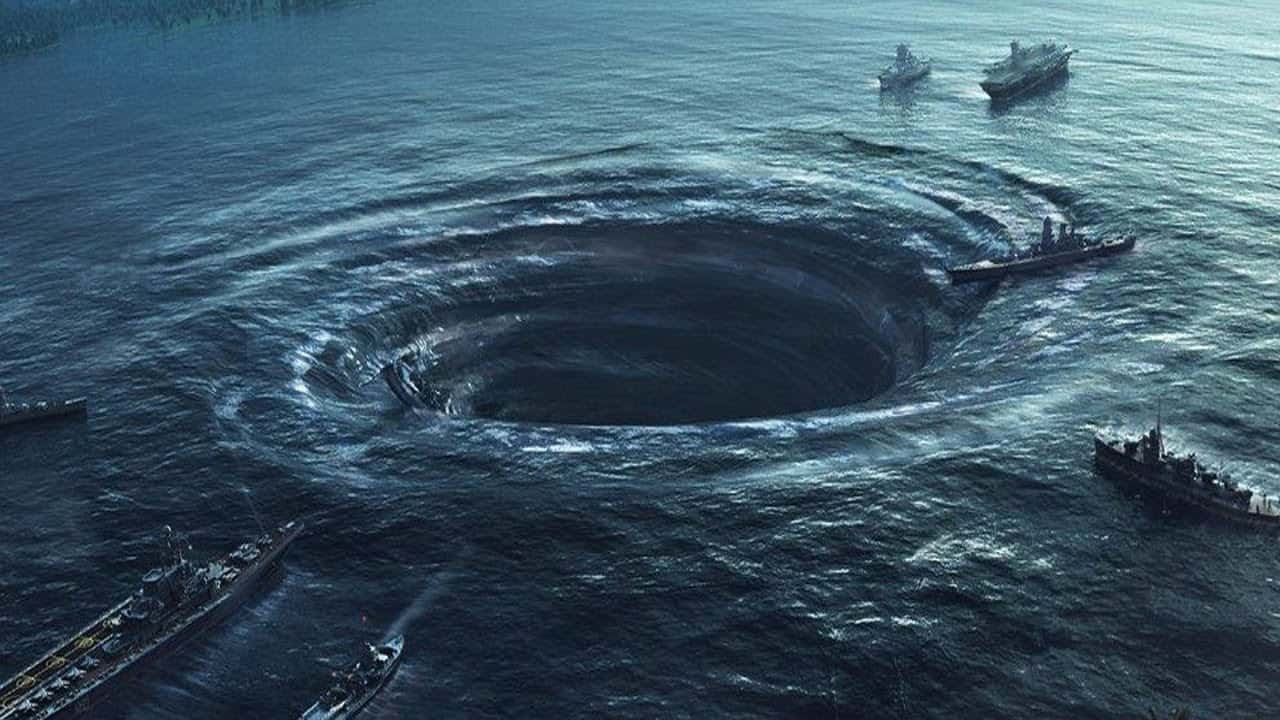 YouTube
YouTube
18. Recorded Disappearances
As of 2018, 75 planes and hundreds of ships are known to have disappeared in the Bermuda Triangle. It’s entirely likely that there have been more disappearances, but as they are not part of any official record, it’s impossible to know for certain.
17. Lost City
A popular legend surrounding the Bermuda Triangle is that it’s the location of the lost city of Atlantis. The story of Atlantis mentions rock formations on the ocean floor, and some very similar formations, called the Bimini Road, are located in the ocean near the Bahamas. A psychic once predicted that the stones would be found, and the city discovered. Legend also has it that the city ran on powerful energy crystals, and those crystals radiate the mysterious energy that causes the navigational instruments of ships and planes to malfunction. So far, it’s just myth, as none of the underwater expeditions carried out in the area have found any evidence of the lost city or any power crystals. But it sure would explain a lot...
16. Ghost Ship of the Bermuda Triangle
The disappearance of the Carroll A. Deering is one of the biggest maritime mysteries of all time. The ship was lost on a return trip from Rio de Janeiro, and was eventually found ramshackle and abandoned off the coast of North Carolina. All eleven crew members (including the Captain) were missing, as well as their personal effects, the log book and all navigation equipment. None were ever found. Bermuda Triangle theorists claim that the disappearance was a result of paranormal activity, but the last sighting of the ship was hundreds of miles beyond the Triangle's borders. While nothing has ever been proven, the little evidence that we have suggests a mutiny occurred on board.
15. Gross Exaggeration
The story of the Mary Celeste was fictionalized and sensationalized by Sir Arthur Conan Doyle in his short story J. Habakuk Jephson's Statement, which told the story from the point of view of a fictional survivor—ex slave J. Habakuk Jephson. While Doyle later became known as a fiction writer, at the time many people accepted his story as fact. In 1913, another supposed survivor’s story was published in The Strand magazine, but it was full of inaccuracies and was no better than Doyle's fiction.
14. On TV
In a sixth season episode of the X Files called “Triangle,” Agent Mulder boards the wreck of a missing WWII Ship that mysteriously appears in the Bermuda Triangle and travels back in time to 1943 when the ship was active. In a different episode, an Area 51 agent named Morris Fletcher claims to have been the one to coin the term Bermuda Triangle, and that there are supernatural forces hidden beneath the waves. Other TV shows such as Wonder Woman, Sabrina: The Teenage Witch, Quantum Leap, and The Librarians all had Bermuda Triangle themed episodes.
13. Range of Size
The area called the Bermuda Triangle has no exact size, since most governments deny its existence and so there's no authority to actually determine its boundaries. Based on the common definition of Miami/San Juan/Bermuda, the total area is around 530,000 square miles, but according to some, it’s as large as 1.5 million square miles.
12. Debunking the Myth
A 1975 book called The Bermuda Triangle Mystery Solved by Larry Kusche claimed that all of the other authors who wrote about the Triangle exaggerated and hadn’t properly researched the topic. He argued that some of the mysteries weren’t mysteries at all, facts had been misstated or left out, and the number of disappearances were proportionate to the amount of traffic that passed through the area. The book did such a thorough job of discrediting the other books that the hype surrounding the Triangle in the early 70s mostly died down.
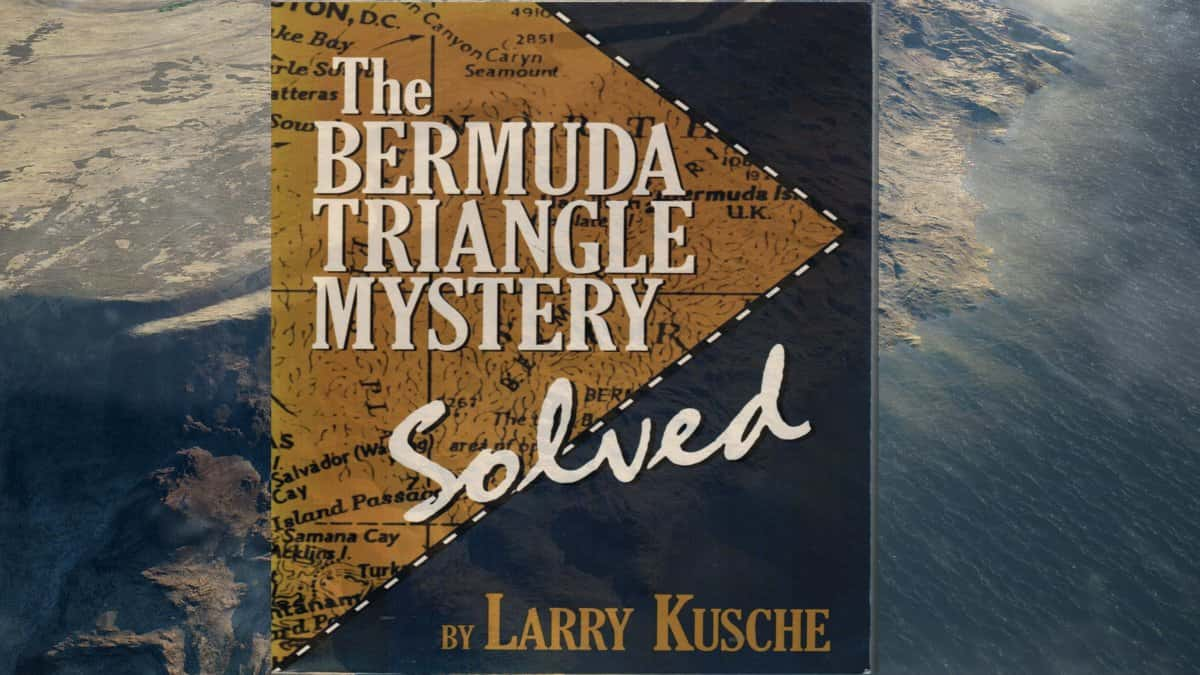
11. Tech Failure
A frequently written about disappearance is that of the SS Marine Sulphur Queen. The ship was a civilian tanker carrying sulfur (shocker) and a crew of 39 people that disappeared off Florida’s coast in 1963. The investigation revealed that the vessel had a number of technological problems that should have prevented it from ever going to sea and the fact that it was lost in the Bermuda Triangle was likely due to those issues and not any mysterious phenomenon.
10. Lost in a Cloud
In 1970, pilot Bruce Gernon claimed to have been trapped inside an elliptical shaped cloud while flying through the Bermuda Triangle. He said the cloud started spiraling and turning counter-clockwise while he was inside, though his plane kept moving forward. When he emerged near Miami Beach, he had travelled 100 miles 30 minutes faster than usual. In a similar incident, an experienced pilot named Jenson reported being lost in a cloud 150 feet above the ground. Eleven hours later, his voice was heard 600 miles away from where he was originally lost and out of fuel. Unlike Gernon, Jenson vanished without a trace.
9. The Modern Legend
The contemporary Bermuda Triangle legend was born in a 1951 article by Edward Van Winkle Jones, published by the Associated Press. In the article, he wrote about the numerous disappearances of ships and planes, stating that all 135 unaccounted for individuals were “swallowed without a trace.” So you can thank ol' Van Winkle Jones for most of these stories!
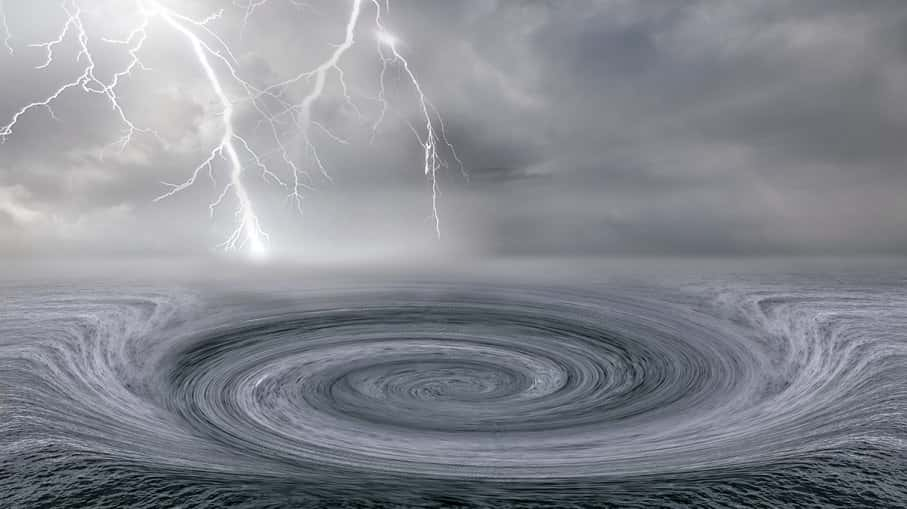
8. The Case of the Disappearing Yacht
On the 22 of December in 1967, Captain Dan Burack and his friend set off on a 23-foot luxury yacht named Witchcraft (a bad omen?) in hopes of enjoying a view of Miami’s Christmas lights from the water. After reaching one mile off shore, they radioed the coast guard stating that they’d hit something but suffered no major damage. The coast guard immediately dispatched help to tow the ship to shore, but by the time they reached the ship’s location 19 minutes later, there was no sign of it. The yacht was fitted with a special flotation device that was supposed to make it unsinkable, but the search for the vessel and the men turned up nothing.
7. Hutchison Effect
In 1979, self-proclaimed inventor John Hutchison allegedly demonstrated what happens when electromagnetic fields of different wave lengths interact with one another. Hutchison argued that he could make metals melt, break by sliding sideways, and become white hot without burning anything. Hutchison's electromagnetic field "experiments" have been said to prove the existence of so-called “electronic fog,” which surrounds an aircraft/vessel, causing electronic equipment and systems to malfunction, as was the case with Gernon and Jenson. Since the cloud travels with the plane or the ship, a person’s sense of place and time becomes distorted, and makes it seem as if they’ve entered a time warp. Though this was purported to be a more "scientific" explanation of the seemingly supernatural phenomena in the Triangle, no one other than Hutchison has been able to recreate these effects and the greater scientific community disregards the existence of electronic fog.
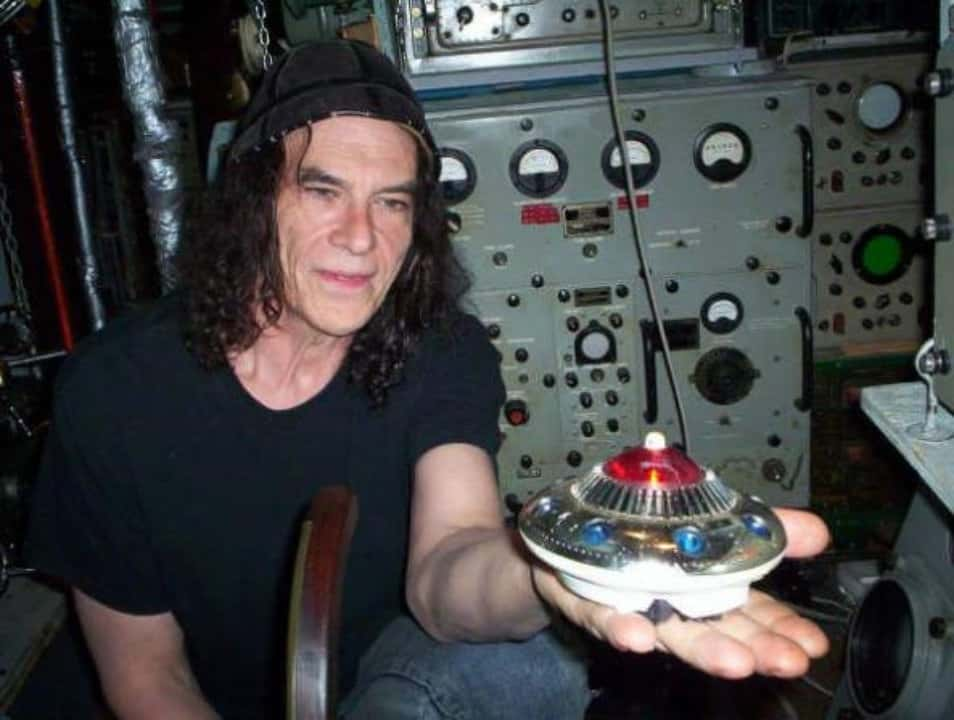
6. Sea Fart
One possible explanation of what causes ships and aircraft to disappear is the build-up of gas under the sea floor. That gas can erupt and cause the density of the water to rapidly drop, resulting in ships going under. The explosion created by this released gas can also be violent enough to cause planes flying overhead to catch fire and crash into the waves.
5. Lost
The Mary Celeste set sail from New York to Genoa, Italy on November 7, 1872 with seven crewmen, the Captain, his wife, and their two-year-old daughter. Nearly a month later, the ship was discovered under partial sail without a soul on board. The ship had been loaded with raw alcohol, and when it was discovered, the lifeboat was missing, nine barrels were empty, and there was a sword on deck. The food and water supplies were left on board, as were the crew’s possessions. While it seemed as though everyone had left in a hurry, there were no signs of any violent incidents such as mutiny or attack. There have been numerous theories about what caused the ship to disappear, including fraud, mutiny, piracy or a storm, but there’s no concrete evidence to prove any of them. Many people have blamed the Triangle on the strange events, but it's unlikely that the Mary Celeste made it far enough south to truly intersect with the region. That hasn't stopped BT diehards from speculating all over the place though.
4. Wrong Time, Wrong Place
The SS El Faro sank in the Bermuda Triangle in 2015 while sailing from Jacksonville, Florida to San Juan, Puerto Rico. The captain charted a course that should have kept the ship away from a nearby hurricane, but it somehow deviated from its planned route and ended up sailing right into the storm. The ship was finally located 15,000 feet beneath the surface, and the voice recorder confirmed that the storm caused it to sink. How it ended up in the storm is unknown. The ship had recently undergone a technical inspection and was found to be sound, so whether it was affected by an external magnetic field or if some other cause was at work is the subject of great speculation.
3. Pure Imagination
If you’ve ever been curious why there are no maps of the Bermuda Triangle, there’s actually good reason for it: The US Government refuses to map it because they want to be clear that they do not buy into the myth. The Coast Guard and the Navy emphatically state that anything "mysterious" that goes on there can be blamed on nature and human error, and not something supernatural. The US Board of Geographic Names also does not recognize the Bermuda Triangle as a name and has no official file on the region. Methinks the Coast Guard doth protest too much?
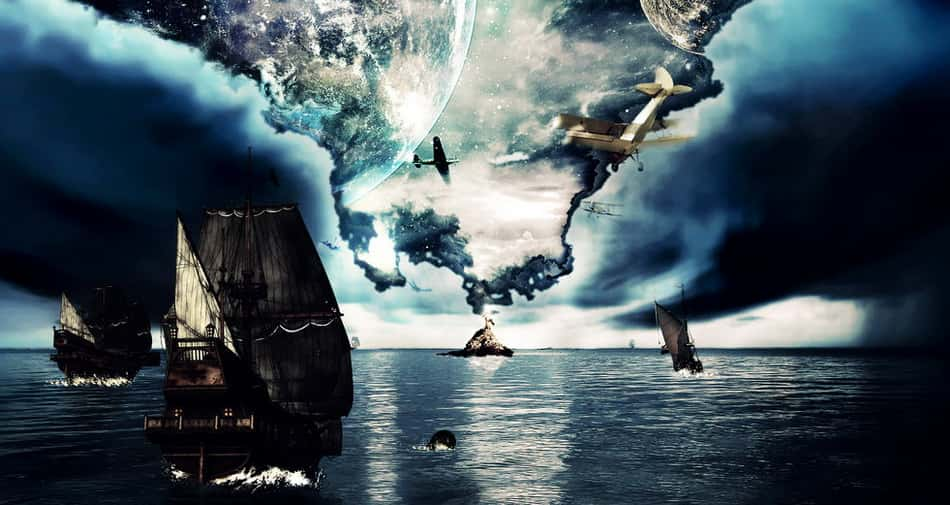
2. First Voyage
You may be familiar with the legend of the Bermuda Triangle, but what you may not know is that the "discoverer" of the New World himself, Christopher Columbus, had his own weird encounter with this spot, perhaps setting the tone for its future visitors right off the bat. Columbus reported to seeing a giant flame, a mysterious light in the distance, and unusual compass readings while passing through the area.
1. Crazy Compass
In his journal, Columbus also recorded crazy readings on his compass, and some accounts claimed it was the unknown energy in the triangle that caused it. However, this too has an explanation. Early sailors used the North Star as a navigational tool, and compasses always pointed true north. What they didn’t realize was that the star and the compasses lined up in the region, and the Triangle was one of the few places where magnetic north and true north were the same. To be fair, they were the first Europeans to ever travel to that area of the world, so they didn't know what to expect. Give them a break!
Sources: 1, 2, 3, 4, 5, 6, 7, 8, 9, 10, 11, 12, 13, 14, 15, 16

